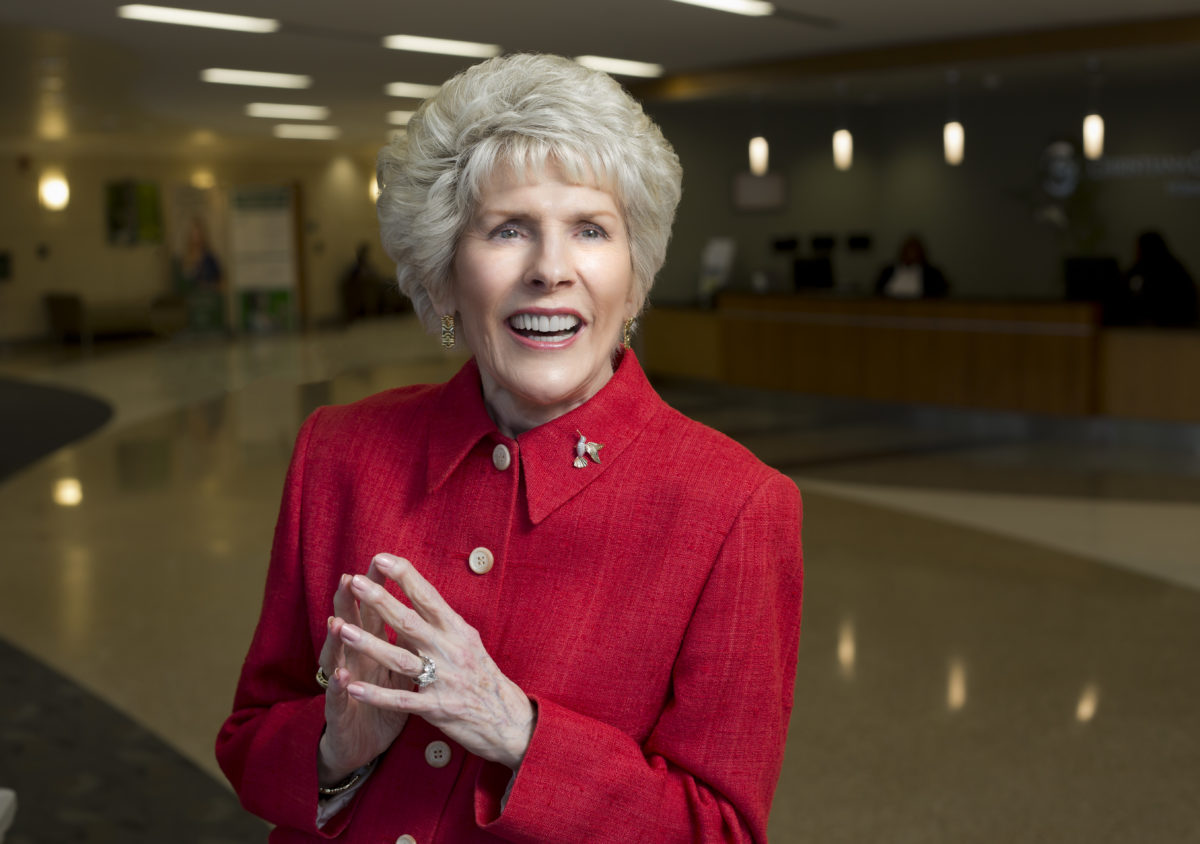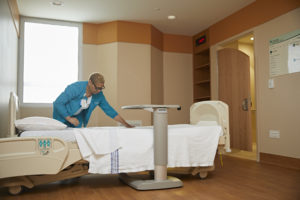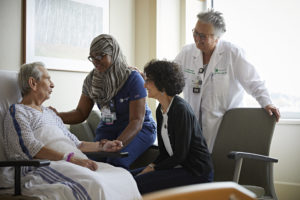With the nation’s baby-boom generation aging and its senior citizen population growing at a rate nearly three times that of the general population — to an estimated 80 million by 2050 — the number of older patients receiving care in emergency rooms is on the rise. Alzheimer’s disease and other dementias among older patients present additional challenges in navigating the emergency department environment.
Christiana Care Health System is addressing the unique needs of geriatric patients needing emergency care with the generous support of philanthropist Jane Copeland. The Copelands designated a $500,000 gift to Christiana Care to enhance geriatric services at the Wilmington Hospital Emergency Department.
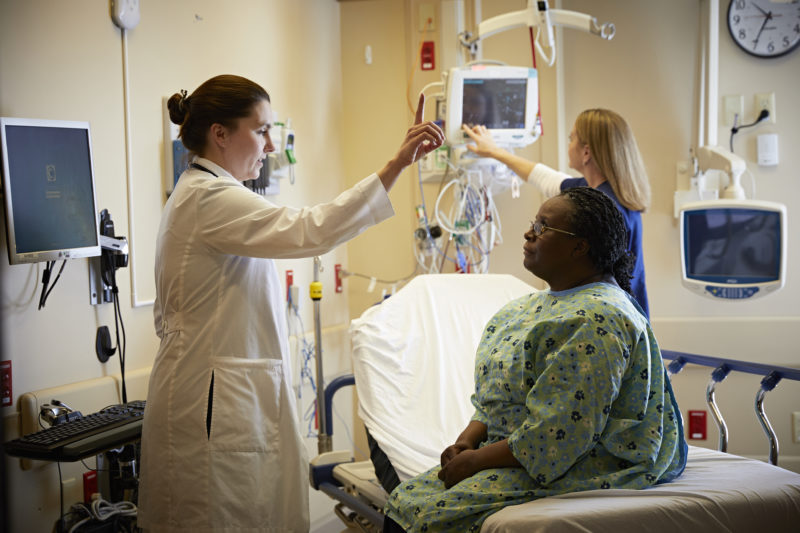
The gift was made in honor of her late husband, William “Bill” Copeland, a Christiana Care Trustee from 1983 to 2012, former chair and CEO of Continental American Life Insurance Company and an executive with Bell Atlantic Corporation.
The Copelands have been devoted supporters of Christiana Care over the years and, after her husband’s passing, Jane Copeland extended their philanthropy by establishing the Copeland Emergency Geriatric Enhancement Fund.
The fund is now making a real difference in people’s lives as it supports important initiatives to enhance the comfort and safety of emergency services for older patients.
Reflecting on the reason for her gift, Copeland said, “I made my gift to Christiana Care to provide support for the needs of geriatric patients and families, with an understanding of how challenging emergency department visits can be for them. A specialized environment and expert care attentive to the needs of older patients will make a difference in their health trajectory and their health care experience.”
Thanks to her generosity, Wilmington Hospital’s Emergency Department now features several initiatives that make emergency care safer and more welcoming for older patients.
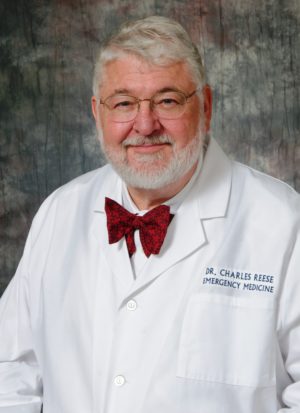
According to Charles L. Reese IV, M.D., FACEP, chair of the Department of Emergency Medicine and director of the Emergency Medicine/Internal Medicine Residency Program, these initiatives are based on best practices in emergency care such as those identified in the Geriatric Emergency Department Guidelines developed jointly by the American College of Emergency Physicians, The American Geriatrics Society, Emergency Nurses Association and the Society for Academic Emergency Medicine.
Christiana Care’s elder emergency care initiatives are the result of a careful assessment of its services and consultation with an architect of those guidelines, identifying three core areas needing specific attention: education, physical modifications and follow-up.
“Thanks to the generous and thoughtful Copeland gift,” said Dr. Reese, “we have actively invested in all three areas.”
Education initiatives
The Copeland Fund assists several education-related initiatives that support the Emergency Department’s geriatric services. These include education and training programs for the department’s attending physicians, residents and nurses.
“This focus on geriatric emergency care has not been a traditional part of medical training in the past,” explained Dr. Reese. “But now we are raising the level of awareness of our staff to the special needs of older patients and integrating a geriatric-specific approach into our care model.”
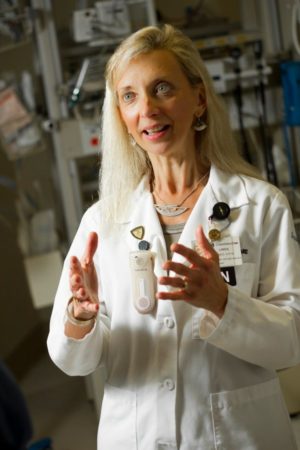
The Emergency Department is also bolstering its education outreach to older patients and their families, according to Linda Laskowski Jones, MS, APRN, ACNS-BC, FAWN, FAAN, vice president for Emergency and Trauma Services.
“We’re working closely with our Patient Experience and External Affairs departments and staff nurses to get safety information out to our older patients,” said Jones. “We’re also reaching out to the people who accompany them – family and friends – about how they can partner with us to keep their loved ones safe in the Emergency Department.”
Physical modifications and patient follow-up
The Copeland Fund is also supporting a number of ongoing physical improvements in the Wilmington Hospital Emergency Department designed to enhance safety and comfort for older patients and for patients with dementia. These improvements include soothing colors and safety handrails, plus furniture designed for older patients and artwork appealing to a range of generations.
“We have used this assessment process to look at everything we do from the older patient’s perspective,” said Jones. “We are devoted to making their experience safer and more comfortable.”
But of all the initiatives they’ve implemented, said Dr. Reese, “the one thing that has the most impact on geriatric emergency care is ensuring that patients get good follow-up care. That is something the Copeland Fund really helps to make possible.”
The Wilmington Emergency Department, with support from the Copeland Fund, has initiated an extensive call-back program to check in with patients over the age of 60 who have been discharged from the Emergency Department. To date, the program has reached 1,000 patients.
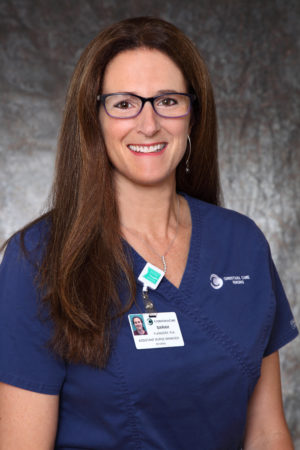
“We check in to be sure our patients aren’t experiencing barriers that would prevent them from healing or getting follow-up care,” said Sarah Flanders, MSN, RN-BC, CEN, nurse manager of the Wilmington Hospital Emergency Department, who oversees the program.
During the calls, Emergency Department nurses see how patients are doing, help schedule appointments, arrange transportation and find out if patients need any additional help or resources.
“We also started a geriatric discharge clinic in conjunction with Family Medicine for discharged patients who don’t have a primary physician or can’t get to one in a timely manner,” said Ellen C. Finney, M.D., medical director of the Wilmington Emergency Department Geriatric Discharge Clinic. “Our goals are to improve access to care and to prevent emergency department revisits.”
The next step, said Dr. Finney, is to gather concrete data on the program’s effectiveness and on the impact of the follow-up services on readmission rates. “We’re already getting a lot of positive feedback and patient satisfaction data from the calls,” she said.
Meeting the diverse needs of older patients
The Copeland-supported emergency care initiative dovetails with other geriatric services offered at Christiana Care. Some of these include: the collaborative services offered through the We Improve Senior Health (WISH) Program; the Acute Care for the Elderly (ACE) Unit devoted to improving outcomes and preventing complications with older patients; the Geriatrics Consult Program for assessing the overall health and well-being of individuals over the age of 65; and the comprehensive outpatient services of the Swank Memory Care Center.
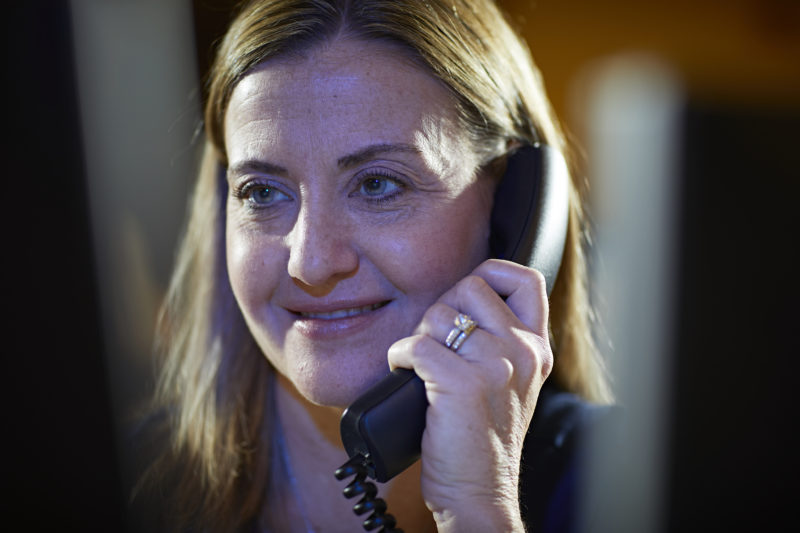
But Jones stressed that the emergency-care experience presents special challenges for older patients, and she praised the Copeland gift not only for its impact on services, but also for the cultural change it has nurtured in the Emergency Department.
“Aging for many brings physical challenges and impairments,” she said. “We have to see the world through their eyes and address their specific needs. Even simple things — like safer surfaces or informational literature with larger type — can make a big difference in providing better care for older patients.”
Dr. Reese agreed: “The Copeland Fund has helped to bring about a substantial shift in the culture of the Emergency Department. There’s a much greater awareness of the needs of geriatric patients and a much greater sense of happiness and effective care on the part of our patients as a result. That has exponential impact.”
